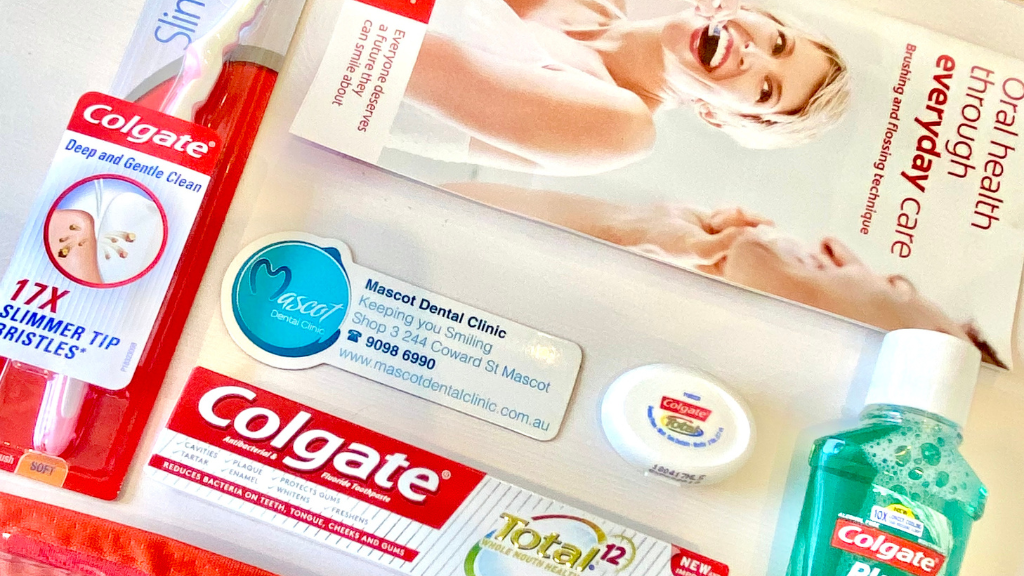
📅
Dr Jess Wong
Do I really need a dental checkup every 6 months? Yes! Regular dental check-ups are essential for maintaining a healthy smile and preventing serious dental issues before they become painful or costly. Even if you brush and floss daily, some problems can develop quietly and only a dentist can catch them in the early stages. At Mascot Dental Clinic, we believe in proactive care to keep your teeth and gums in top condition. Here are 7 key reasons why scheduling routine dental check-ups is so important:
1. Cavities / Holes in Teeth
Cavities, or holes, are one of the most common dental problems and can form even with a consistent brushing and flossing routine. Plaque can build up in areas that your toothbrush and floss are missing, and eventually lead to tooth decay. During a check-up, your dentist can spot the early signs of cavities, often before you experience any pain or sensitivity, and we can monitor them or decide to fill them.
Sometimes even large cavities can be completely symptomless. This is because tooth decay usually develops slowly, sometimes to the point where the nerve in the tooth can recognise what’s happening and try to defend itself. The inner dentine layer of the tooth is also much softer than the outer enamel layer and if decay spreads, it often leaves a thin shell resembling a tooth where the inside is completely decayed.
Treating cavities early prevents them from getting larger, reducing the risk of infections, abscesses, or even tooth loss. A small filling is much easier and less expensive than a root canal or tooth extraction.
2. Gum Diseases and Gum Recession
Gum health is just as important as tooth health, and regular dental check-ups can help identify gum diseases like gingivitis and periodontitis. Each tooth sits in its own pocket of gum and bone. Any bacteria hiding in these pockets can cause damage if left unchecked. During a dental visit, we will assess your gum health, checking for signs of inflammation, bleeding, or recession. Early treatment for gum disease is often simple, involving deep cleaning and improving your oral care routine. Your dentist can identify these area and discuss with you how to prevent further damage.
Over-brushing and grinding can also lead to gum problems like gum recession (when the gum tissue shrinks, exposing more of the root surface of the tooth). Gum recession can increase sensitivity and make your teeth more vulnerable to decay and infection. It is important to identify these early to be able to minimise their long-term impact.
3. Cracks in Teeth
Teeth can develop small cracks from everyday wear and tear, grinding, or even from biting down on something hard. Cracks in teeth can be very small and may not cause immediate discomfort, but over time, they can grow and allow bacteria to enter. Ultimately, they can lead to infection or a catastrophic and unrestorable break.
We can identify these cracks before they become serious, often using tools like 2D or 3D x-rays. By addressing cracks early on, you may be able to avoid more extensive procedures like crowns or root canals, and protect the overall integrity of your teeth.
4. Broken Fillings
Fillings are durable, but over time they can break down or become loose. Broken fillings not only fail to protect the tooth but can also allow bacteria to enter the area and hide, leading to further decay. Regular check-ups allow us to inspect your fillings and ensure they are in good condition. If a filling is found to be cracked, worn, or broken, it can be replaced to restore the tooth’s function and prevent more serious problems.
5. Bad Habits (e.g., Grinding)
Certain habits, such as teeth grinding (bruxism), nail-biting, and chewing ice, can cause significant damage to your teeth over time. Teeth grinding, for example, can wear down enamel, increase sensitivity, and even lead to fractures. Many people are unaware they grind their teeth, as it often occurs while they’re asleep.
6. Wisdom Teeth Problems
For many people, wisdom teeth emerge in their late teens or early twenties and can lead to issues like pain and infection. If there isn’t enough space in your mouth for these teeth to come in properly, they may become impacted (stuck under the gum) or grow in at an angle, pushing against and damaging adjacent teeth. Wisdom teeth can also develop cysts in the jaw, further impacting the surrounding oral structures.
Routine dental check-ups allow us to monitor the development of your wisdom teeth. By catching potential issues early, we can recommend the best course of action, which may include removing problematic wisdom teeth before they cause further problems.
7. Oral Cancer
Oral cancer is a serious but often overlooked health risk. During a routine dental check-up, we will examine your mouth, tongue, lips, and throat for any signs of abnormal tissue or lesions that could indicate oral cancer. Early detection is critical, as oral cancer can be highly treatable when caught in its initial stages.
Regular screenings help detect unusual changes in the mouth, even if there are no visible symptoms, which increases the chances of successful treatment. By including oral cancer screenings in every check-up, we can provide you with peace of mind and proactive care for your overall health.
Conclusion
Regular dental check-ups are about more than just keeping your teeth clean - they play a crucial role in identifying and addressing dental issues before they become serious. From cavities to gum disease, cracked teeth to broken fillings, and even early oral cancer detection, your dentist is your first line of defence in maintaining a healthy, beautiful smile. At Mascot Dental Clinic, we’re committed to helping you preserve your oral health and preventing problems.
If it has been a while since your last check-up, or if you’re experiencing any of the symptoms mentioned, don’t wait! Contact Us to make an appointment now!
Tags: #Gum health